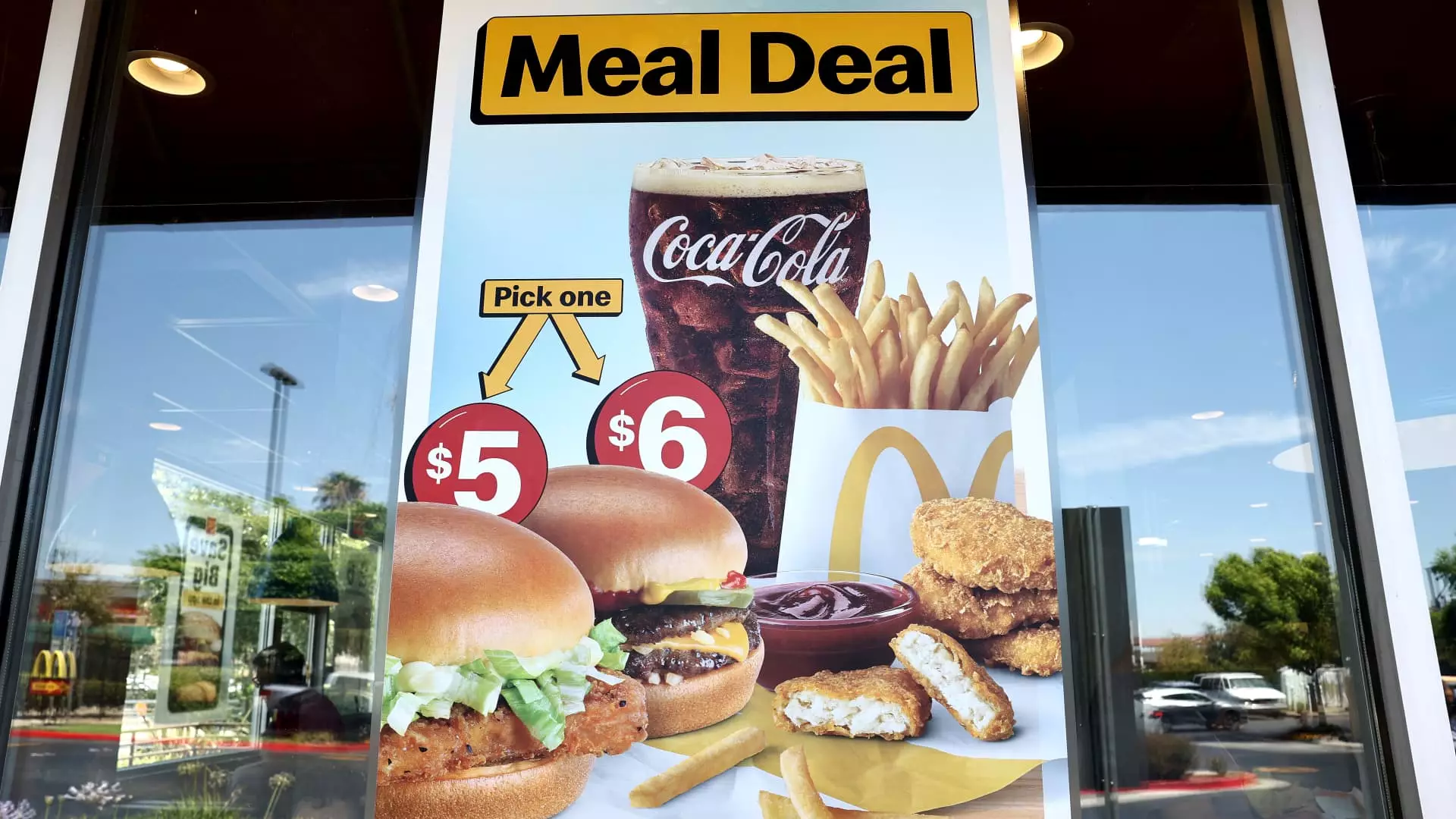In recent times, restaurant CEOs have been using the word “value” extensively when discussing their sales performance and future strategies with investors. This emphasis on value is a response to the significant increase in prices for food away from home, which has risen by 27.2% since June 2019 according to the Bureau of Labor Statistics. As a result, consumer spending on dining out has decreased, leading to a decline in restaurant traffic and sales. Many restaurant chains are now focusing on discounts and promotions, such as the $5 meal deals offered by McDonald’s, Burger King, and Taco Bell, in an attempt to lure back customers who are looking for better value for their money.
Several restaurant executives have acknowledged that their chains have fallen short in delivering value to their customers. For instance, McDonald’s CEO Chris Kempczinski addressed the issue by admitting that the company’s reputation for value had diminished recently, leading to a decrease in same-store sales. However, the introduction of McDonald’s $5 Meal Deal has shown promise in attracting customers, especially those on a tighter budget. Similarly, Chipotle Mexican Grill has also faced challenges related to perceived value, with some customers claiming that the portion sizes have decreased. Despite reporting strong same-store sales growth, Chipotle remains committed to emphasizing the value proposition by ensuring generous portions for its customers.
Even fast-food giants like Burger King have joined the value-focused strategy by introducing their own $5 value meal. While concerns about profitability and financial health persist, companies across the industry are hopeful that a renewed focus on value will help regain market share and improve customer satisfaction. Dine Brands, the parent company of Applebee’s and IHOP, has also seen a shift in consumer behavior among lower-income demographics, with customers opting for value menu items instead of higher-priced dishes. This trend underscores the importance of offering value-driven options in a market where consumers are increasingly price-conscious.
Beyond catering to consumer preferences, restaurant executives are also mindful of shareholder value amid concerns about the industry’s financial performance. As restaurant stocks continue to face pressure from investors, the need to strike a balance between offering value to customers and maintaining profitability remains a key priority. While discounts and promotions may attract more customers in the short term, they can impact the overall financial health of restaurants and franchisees. The ongoing “value wars” among chains to outdo each other with deals raise questions about the sustainability of such strategies in the long run.
Despite the challenges and uncertainties surrounding the value-driven approach, there are signs that it is resonating with customers and creating positive outcomes for some chains. The industry’s focus on value has the potential to enhance the overall value-for-money perception among consumers, leading to increased customer loyalty and engagement. As companies navigate the evolving landscape of the restaurant industry, finding the right balance between offering value to customers and delivering financial returns to shareholders will be crucial for long-term success.

